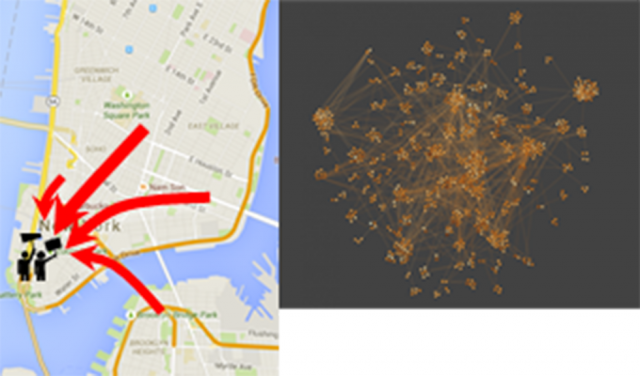ThinkSpatial: Ambuj Singh

Inferring Network Structure and Flows using Partial Observations
Ambuj Singh
University of California Santa Barbara
Abstract: Predicting network structure and flows on edges is a precondition to effective planning and disaster response in critical infrastructure networks. I will summarize some ideas inspired by network science, physical modeling, and machine learning to determine this information from incomplete observations. Using both physical domain-specific and data-driven approaches, these algorithms address diverse problems including: the reconstruction of network topology and parameters, the estimation of network flows, the optimal selection and scheduling of multiple types of sensors, and the modeling of interdependencies in multilayer networks. The overall goal is to develop a rigorous theory for solving the inverse problem of edge and flow determination from observations of critical infrastructure networks.
Bio: Ambuj Singh is a Professor of Computer Science at the University of California, Santa Barbara, with part-time appointments in the Biomolecular Science and Engineering Program and the Technology Management Program. He received a B.Tech. degree from the Indian Institute of Technology, Kharagpur, and a Ph.D. degree from the University of Texas at Austin. His research interests are broadly in the areas of network science, machine learning, social networks, and bioinformatics. He has published 200 technical papers over his career. He has led a number of multidisciplinary projects including UCSB’s Information Network Academic Research Center funded by the Army, Interdisciplinary Graduate Education Research and Training (IGERT) program on Network Science funded by the NSF, and the Multidisciplinary University Research Initiative (MURI) on Network Science of Teams (https://muriteams.cs.ucsb.edu/) funded by the U.S. Army. He has graduated approximately 50 Ph.D., M.S., and postdoctoral students over his career, including 26 Ph.D. students.
The objective of the ThinkSpatial Forum is to exchange ideas about spatial perspectives in research and teaching, broaden communication and cooperation across disciplines among faculty and graduate students, and encourage the sharing of tools and concepts.